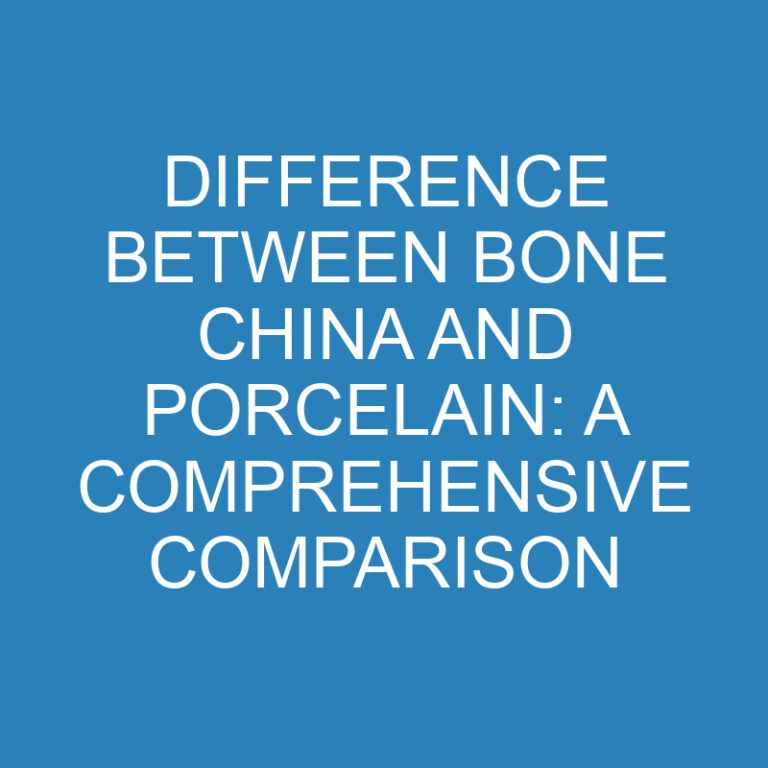
Wondering what sets case studies apart from phenomenology? Well, let me break it down for you. When it comes to research methodologies, these two approaches have distinct characteristics and purposes. While both aim to gain a deeper understanding of a particular subject, they employ different methods and perspectives.
A case study is an in-depth investigation of a single individual, group, or phenomenon. It involves collecting detailed data through various sources such as interviews, observations, and documents. The researcher analyzes the information to uncover patterns, themes, and insights related to the specific case being studied. Case studies are often used in psychology, sociology, and business research to provide rich descriptions and explanations.
On the other hand, phenomenology focuses on understanding the lived experiences of individuals within a certain context or phenomenon. It explores how people perceive and interpret their surroundings by examining their thoughts, feelings, and behaviors. Phenomenological research involves gathering data through interviews or written accounts known as “phenomenological descriptions.” Researchers strive to get inside the subjective experiences of participants rather than studying them objectively.
In summary, while case studies delve deep into a particular case or situation using multiple data sources for analysis; phenomenology aims at exploring the subjective experiences of individuals within a specific context. Both approaches offer valuable insights but vary in terms of focus and methodology.
What exactly is a case study? Well, let me break it down for you. A case study is a research method that involves an in-depth examination of a particular individual, group, or situation. It’s like diving into the depths of a specific scenario to understand all its intricacies and complexities.
In a case study, researchers gather detailed information through various sources such as interviews, observations, documents, and even surveys. The goal is to gain a comprehensive understanding of the subject matter by analyzing real-life examples and collecting rich data.
One of the key features of a case study is its focus on context. Unlike other research methods that aim for generalization, case studies delve into specific contexts to explore unique phenomena or events. This allows researchers to uncover valuable insights and generate new knowledge in areas where limited information exists.
Case studies are widely used in many fields including psychology, sociology, business management, education, and healthcare. They provide an opportunity to examine complex issues from multiple perspectives and offer practical solutions based on empirical evidence.
To give you an example, imagine studying the impact of technology on workplace productivity within a specific company. By conducting interviews with employees at different levels and analyzing their work habits alongside technological advancements implemented within the organization, researchers can determine how these factors interrelate and influence overall productivity.
In summary, a case study is all about zooming in on a particular subject matter to gain deep insights into its nuances. It allows researchers to explore real-world scenarios and draw meaningful conclusions based on thorough analysis rather than relying solely on theoretical frameworks. So next time you come across a case study in your field of interest – dive right in!
What is Phenomenology?
Phenomenology, at its core, is a philosophical approach that seeks to understand and describe the lived experiences of individuals. It delves into the subjective aspects of human consciousness, focusing on how people perceive and interpret the world around them. Rather than studying external factors or objective reality, phenomenology aims to uncover the essence of an experience as it is directly experienced by individuals.
In phenomenology, researchers strive to suspend any preconceived notions or assumptions and adopt a fresh perspective when exploring phenomena. They aim to grasp the underlying meanings and structures embedded within our conscious experiences. By examining these fundamental aspects, phenomenologists seek to gain insight into various aspects of human existence such as perception, emotion, intentionality, embodiment, and social interactions.
One key aspect of phenomenological research is the use of qualitative methods such as interviews and observations to gather rich descriptions of individual experiences. This enables researchers to capture the intricate nuances and complexities that shape our understanding of a particular phenomenon. Through careful analysis and interpretation, phenomenologists aim to uncover common themes and patterns across multiple individual accounts.
Phenomenology has found applications in various fields including psychology, sociology, anthropology, education, healthcare, and more. For instance, in psychology, it has been used to explore topics like empathy, consciousness states, self-awareness, and personal growth.
By adopting a phenomenological approach in research studies or case analyses can provide valuable insights into subjective experiences that may not be captured through quantitative measures alone. It allows us to delve deeply into the intricate workings of human consciousness while appreciating the uniqueness and diversity inherent in each individual’s lived experience.
Keep reading as we dive deeper into comparing phenomenology with case studies in order to understand their similarities and differences better
Key Characteristics of a Case Study
When it comes to conducting a case study, there are several key characteristics that define this research method. Here’s a closer look at what makes a case study distinct and valuable:
- In-depth analysis: A case study involves an in-depth examination and exploration of a particular subject or phenomenon. It delves into the details, aiming to understand the intricacies and complexities involved. By focusing on a specific case, researchers can gather rich and detailed insights.
- Real-world context: Unlike other research methods, such as experiments conducted in controlled environments, case studies provide an opportunity to examine phenomena within their real-world context. This means taking into account various variables and factors that influence the subject being studied.
- Multiple data sources: Case studies rely on gathering information from multiple sources to gain a comprehensive understanding of the topic at hand. These sources may include interviews with key stakeholders, observations, documents, archival records, or even direct involvement in the situation being studied.
- Qualitative approach: While quantitative data has its place in research, case studies primarily employ qualitative methods to collect and analyze data. Researchers focus on exploring subjective experiences, perceptions, motivations, and contextual factors through techniques like thematic analysis or content analysis.
- Longitudinal perspective: In many cases, case studies involve studying subjects over an extended period of time rather than just examining them at one point in time. This longitudinal perspective allows for observing changes over time and capturing the dynamic nature of the phenomenon under investigation.
- Unique insights: One of the major advantages of case studies is their ability to generate unique insights that can contribute to theory-building or offer practical implications for real-life situations. By deeply immersing themselves in the subject matter, researchers can uncover patterns or relationships not evident through other research methods.
Overall, it’s important to remember that each case study is unique and tailored to its specific objectives and field of study. The characteristics outlined above provide a foundation for conducting thorough and meaningful research using the case study approach.
Key Characteristics of Phenomenology
Phenomenology is a qualitative research approach that focuses on understanding human experiences and perspectives. Here are some key characteristics that define phenomenology:
- Subjective Exploration: Phenomenology aims to explore the subjective experiences of individuals and how they interpret and make meaning of their world. It delves into the lived experiences, emotions, thoughts, perceptions, and beliefs of participants.
- Suspension of Preconceptions: In phenomenological research, it’s important for researchers to set aside their preconceived notions or biases about a particular phenomenon. This allows them to approach the study with an open mind and be receptive to the unique insights shared by participants.
- Intentional Sampling: Phenomenology often employs purposeful sampling techniques to select participants who have direct experience with the phenomenon being studied. These individuals can offer rich and in-depth descriptions of their experiences, providing valuable data for analysis.
- In-Depth Interviews: Phenomenological studies typically rely on in-depth interviews as the primary method of data collection. Through these interviews, researchers encourage participants to share detailed accounts of their experiences, allowing for a deeper exploration of their thoughts, feelings, and perceptions.
- Data Analysis through Epoche: One distinctive feature of phenomenology is the use of epoche (also known as bracketing) during data analysis. This involves temporarily setting aside any assumptions or interpretations made by both researchers and participants in order to focus solely on the essence and structure of the phenomena under investigation.
- Identification of Essential Themes: During analysis, phenomenologists identify common patterns or themes across participant accounts that represent essential aspects of the phenomenon being studied. These themes help capture its core characteristics while respecting individual variations within each person’s experience.
- Descriptive Approach: Instead of seeking causality or generalizability like other research methods do, phenomenology primarily aims to provide rich descriptions that deepen our understanding of the phenomenon. It seeks to uncover the meaning and significance of experiences as perceived by those who have lived through them.
By embracing these key characteristics, phenomenology offers a unique and valuable perspective on human experiences, allowing researchers to gain insights into how individuals make sense of their world and contribute to our collective knowledge.
Differences Between Case Study and Phenomenology
When it comes to research methodologies, case study and phenomenology are two distinct approaches that serve different purposes. Let’s explore the differences between these two methods:
- Focus:
- Purpose:
- Data collection:
- Analysis approach:
- Generalizability:
Understanding these differences between case study and phenomenology can help researchers choose the most appropriate methodology for their research questions and objectives. Both methods offer valuable insights into different aspects of the social sciences, providing a rich tapestry of knowledge for further exploration.
Conclusion
To conclude, the difference between a case study and phenomenology lies in their research methodologies and objectives. While both approaches aim to gain insights and understand phenomena, they utilize distinct methods that shape the way data is collected, analyzed, and interpreted.
- Case Study:
- Phenomenology:
While both case studies and phenomenology contribute valuable knowledge within different domains of inquiry, it’s essential to choose the appropriate approach based on your specific research question and objectives.
In summary,
- Case studies delve deep into specific cases to explore unique aspects within broader theoretical frameworks.
- Phenomenology focuses on understanding individuals’ lived experiences to uncover shared meanings.
By considering these distinctions, researchers can make informed decisions about which approach aligns best with their research goals. Remember that there is no one-size-fits-all method; rather than regarding them as mutually exclusive options, it’s important to view them as complementary tools within qualitative research methodology.






